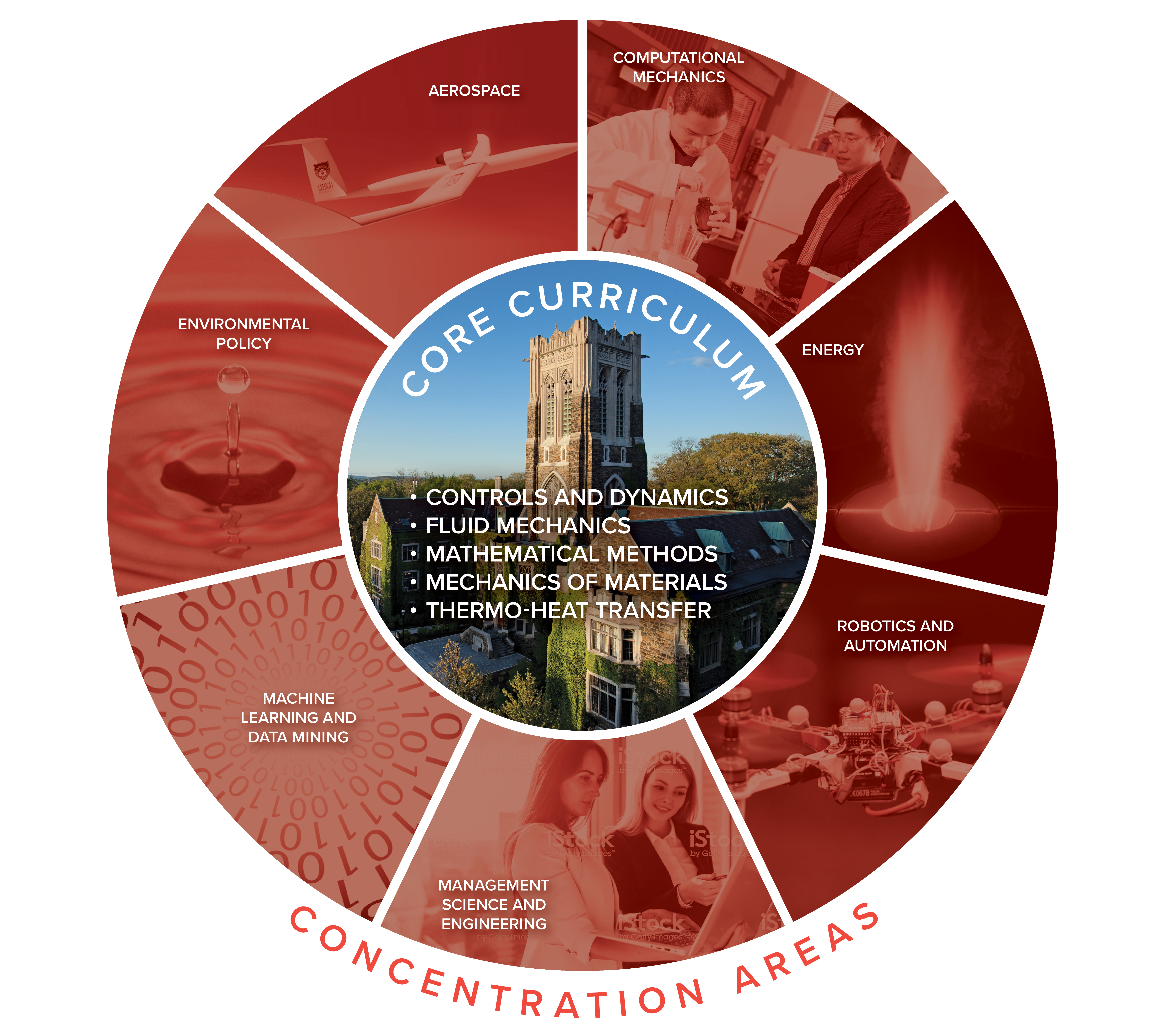Overview
For students who desire to focus on coursework for the MS degree, with the aim of developing deeper expertise in a particular discipline of mechanical engineering, six or more credits of coursework can be taken in the Department of Mechanical Engineering and Mechanics as part of the free electives designated in Group IV of the aforementioned Master of Science Degree Program. These courses can be selected from the areas of controls and dynamics, fluid mechanics, mathematical methods, mechanics of materials and thermo-heat transfer. When selecting courses for this applied option, it should be kept in mind that it is necessary to simultaneously satisfy the aforementioned University requirements for all types of master’s degrees.
This track is well suited to those students who are currently employed by an industrial firm or a government agency and it is difficult to dedicate blocks of time on campus to complete an MS thesis or project. It is, however, also equally suitable for full-time resident students.
The interdisciplinary option is well suited to those students who would like to become involved in emerging and developing areas. It provides the opportunity to develop expertise by taking a concentration of courses in another department or college across the University. Students can enhance their core mechanical engineering knowledge by taking six courses in our Department, while pursuing a desired concentration of four courses outside the Department. This option also includes concentrations of courses within the Department. For some concentrations outside the Department, a certificate has already been approved. In addition to the concentrations of courses that have recently been developed, students may design their own concentrations to suit their specific interests and goals.
The aim of the following is to provide guidance to those MS students who would like to pursue a visible and coherent concentration of courses on a particular topic.

Core Curriculum
-
Controls and Dynamics
-
Fluid Mechanics
-
Mathematical Methods
-
Mechanics of Materials
-
Thermo-Heat Transfer
Concentration areas
